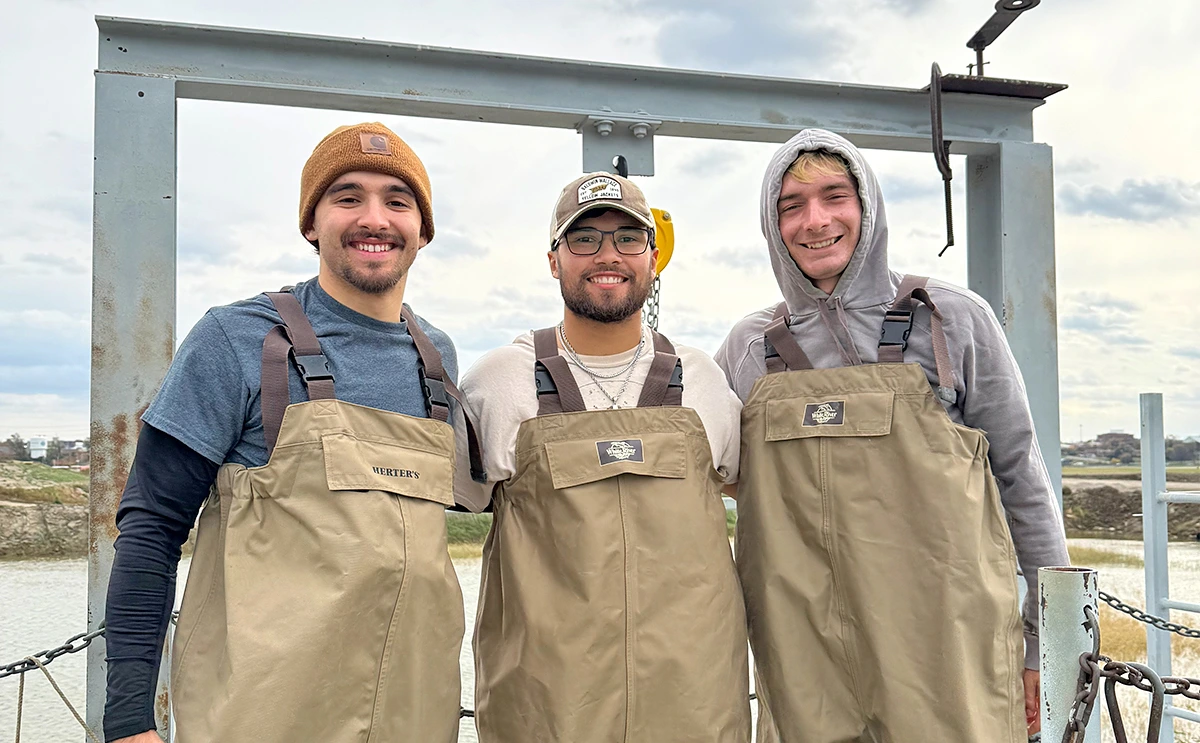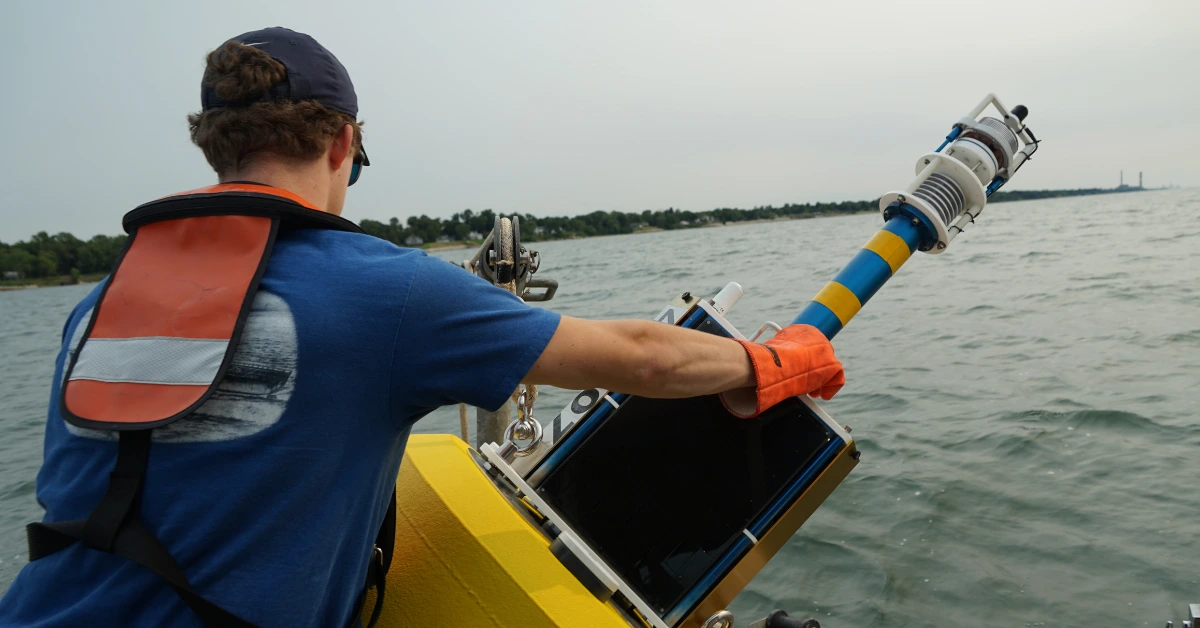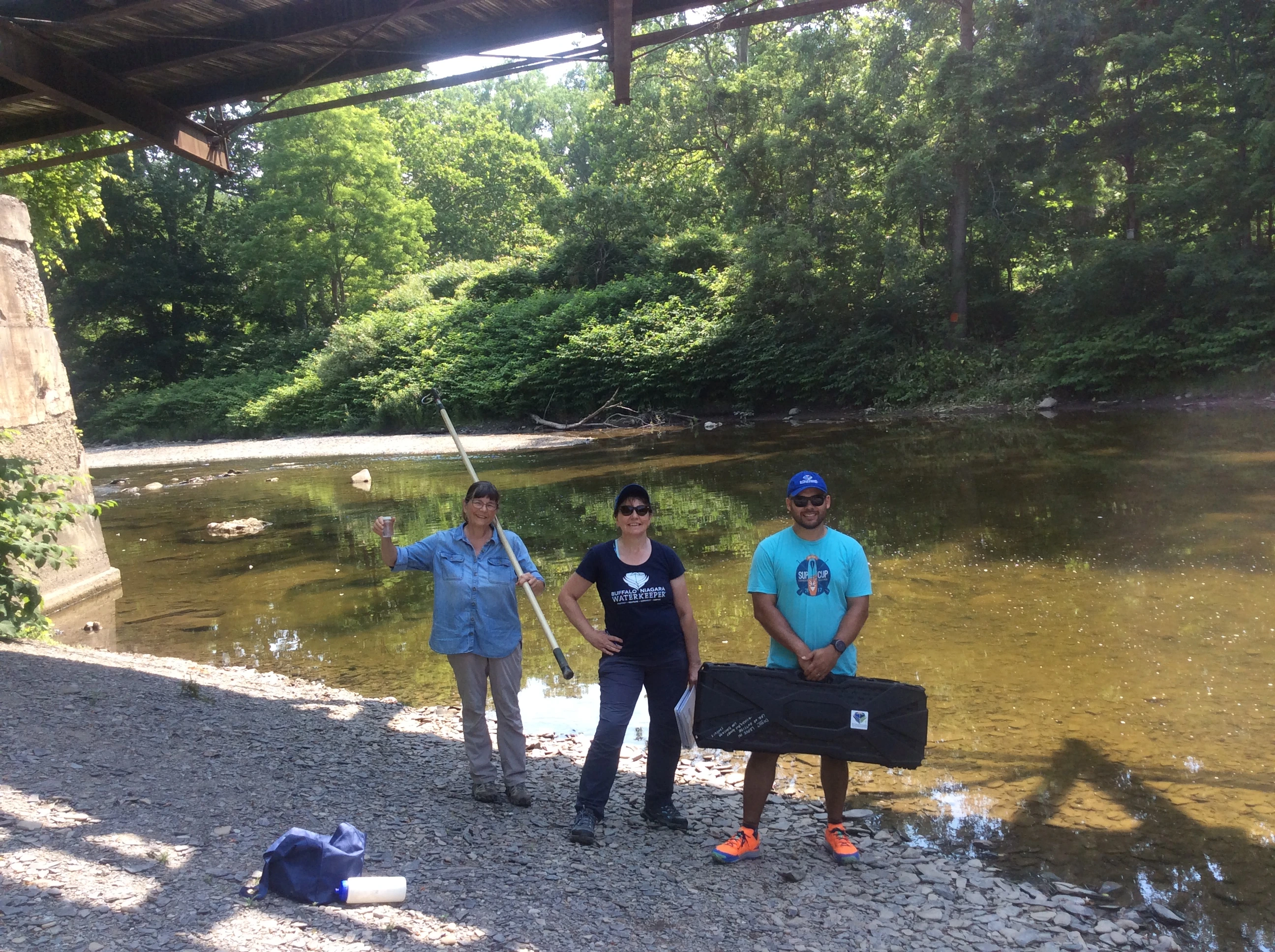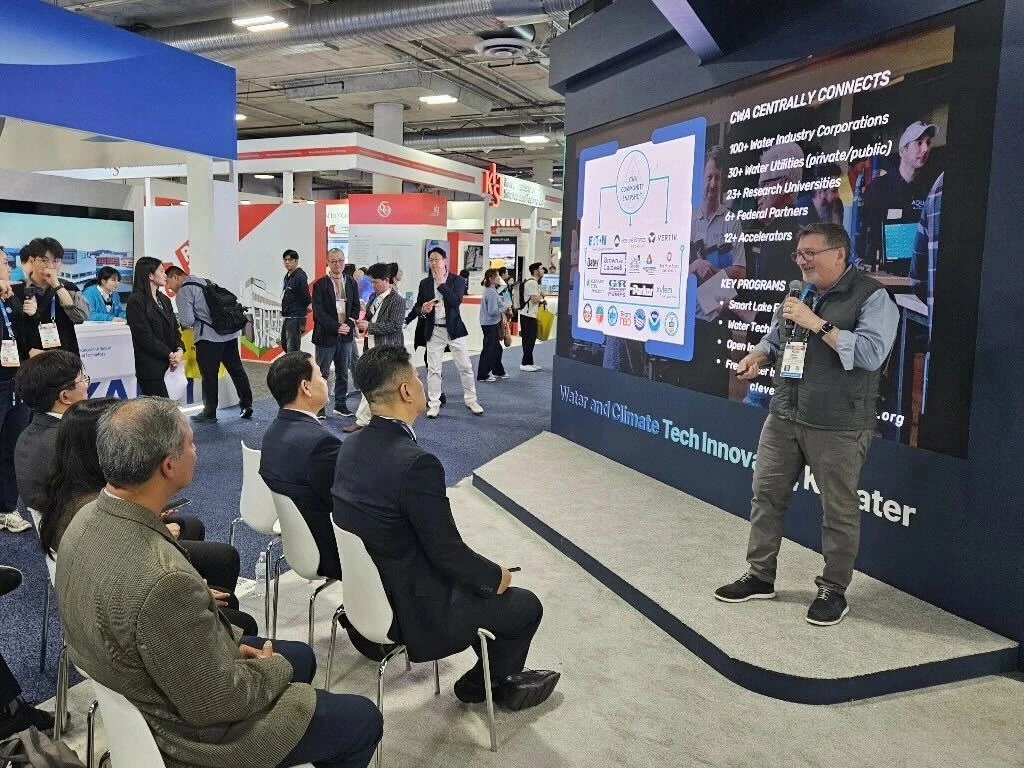Cleveland Water Alliance is at the forefront of identifying and accelerating technology to detect and remediate emerging contaminants.
Listen to this article
Cleveland Water Alliance is at the forefront of identifying and accelerating technology to detect and remediate emerging contaminants.
Our Water Accelerator Testbeds exist to provide solutions for ever-evolving freshwater issues. As our 2024 season is well underway, we look forward to deploying several technologies designed to monitor for these emerging contaminants. With the recent EPA mandate in April 2024, issuing the first-ever national, legally enforceable drinking water standard to protect communities from harmful PFAS, there is a heightened urgency to meet the new regulatory requirements. This mandate, which aims to reduce PFAS exposure for approximately 100 million people, prevent thousands of deaths, and reduce tens of thousands of serious illnesses, creates a significant demand for innovative PFAS monitoring and remediation solutions.
Now more than ever, we are seeing a critical need to identify global solutions for PFAS, addressing real-time detection, removal/concentration, and destruction to meet the substantial market demand for these innovations. Cleveland Water Alliance (CWA) is committed to supporting the development and evolution of these solutions within the water industry, fostering advancements that ensure safer and more sustainable water resources for communities worldwide.
What are PFAS?
Per- and polyfluoroalkyl substances (PFAS) are a group of man-made chemicals used in a wide range of industrial and consumer products since the 1940s due to their resistance to heat, water, and oil. PFAS are commonly found in items such as non-stick cookware, water-repellent clothing, stain-resistant fabrics, and firefighting foams. These chemicals are highly persistent in the environment and the human body, making them known as "forever chemicals." PFAS can enter water systems through various pathways, including industrial discharge, wastewater treatment plant effluent, and runoff from firefighting activities. In the Great Lakes region, including Lake Erie, PFAS contamination is a significant concern due to the high concentration of industrial activity and urban development. Studies have shown that PFAS can accumulate in the water and sediment, posing risks to aquatic life and potentially impacting the safety of drinking water sources for millions of people in the region.
Recent EPA Mandates on PFAS Limits
In April 2024, the EPA finalized a critical rule to designate two widely used PFAS – PFOA and PFOS (different types of perfluoroalkyl substances)– as hazardous substances under the Comprehensive Environmental Response, Compensation, and Liability Act (CERCLA), also known as Superfund. According to the EPA, this designation enhances transparency and accountability for cleaning up PFAS contamination in communities. Alongside this final rule, the EPA issued a CERCLA enforcement discretion policy that clarifies its focus on holding parties who significantly contributed to PFAS releases into the environment accountable.
Additionally, the EPA issued the first-ever national, legally enforceable drinking water standard for PFAS to protect communities from exposure to these harmful chemicals. This landmark rule aims to reduce PFAS exposure for approximately 100 million people, prevent thousands of deaths, and reduce tens of thousands of serious illnesses. To support the implementation of this rule, the EPA announced an additional $1 billion in funding to help states and territories conduct PFAS testing and treatment in public water systems and assist private well owners in addressing PFAS contamination.
New Legislation Creates Demand; Users Must Pivot
Policy changes and mandates, such as the recent EPA ruling on PFAS, create immediate shifts in the market and drive demand for innovative solutions to critical water challenges like PFAS in drinking water. These regulations legally require water managers/utilities to monitor and limit PFAS levels, necessitating the development of effective and affordable methods for detection and remediation. Consequently, innovation must rise to meet this demand, providing new technologies and approaches to ensure compliance and protect public health.
Cleveland Water Alliance's Testbeds and Partnerships Help Fill Crucial Market Gaps
Cleveland Water Alliance's Water Accelerator Testbeds utilize the Smart Lake Erie Watershed to create a dynamic, connected environment for testing Internet-of-Things (IoT) technologies. Our Smart Lake Erie Watershed serves as a comprehensive testbed for a range of technologies, with a particular focus on sensing and monitoring devices. Spanning over 6,700 square miles (17,400 km²) with existing telecommunications coverage, the infrastructure across the Lake Erie watershed enables technology deployment in various environments. Our Water Accelerator Testbeds allow innovators to test, trial, pilot, and demonstrate their technologies in real-world conditions, with legal and insurance considerations addressed. We welcome innovators of all sizes, from startups to multinational corporations, and currently have 60 trials completed, underway, or scheduled, with a growing waitlist for future deployments.
The nimbleness of our testbed to meet market needs provides an unmatched opportunity to test technologies in diverse real-world conditions.
.jpeg)
Our extensive roster of vital, cross-sector partnerships offers a unique opportunity for innovators with drinking water solutions to interface directly with potential end-users. This interaction facilitates testing, feedback, and refinement of their technology, accelerating solutions to emerging contaminant issues.
CWA’s framework for evaluating the market need, existing and emergent solutions around the issue of PFAS, provides a valuable snapshot of the industry landscape to their partners.
CoreWater Technologies is a prime example of an innovator in the Cleveland Water Alliance network working on PFAS solutions in water. Known for its sustainable water treatment solutions, CoreWater Technologies has developed groundbreaking technology to combat the persistent threat of PFAS in water sources. Recently, CWA supported CoreWater Technologies in attending the Ohio VC Fest where they ended up meeting critical funders. Because of this experience they secured $1.3 million in funding, a significant milestone that will accelerate the development and deployment of their PFAS remediation technology. This financial support underscores the urgency and importance of their mission, propelling CoreWater Technologies to expand their field-testing initiatives, scale up production, and enhance their proprietary technology to address PFAS contamination more effectively.
CWA Collaborates on PFAS Solutions through Great Lakes ReNEW Initiative
Cleveland Water Alliance is proud to collaborate with initiatives like the Great Lakes ReNEW project, recently funded by the National Science Foundation, as part of our commitment to enhancing the innovation ecosystem. The Great Lakes ReNEW project, supported by NSF's Regional Innovation Engine, aims to develop innovative methods for extracting valuable minerals and PFAS from wastewater, addressing our region's environmental and economic challenges. CWA's partnership in this effort underscores our dedication to advancing solutions that mitigate PFAS contamination in water, supporting communities affected by environmental and economic injustices.




.svg)










